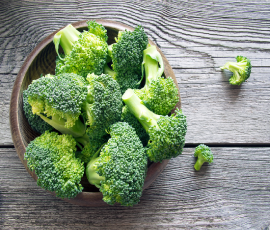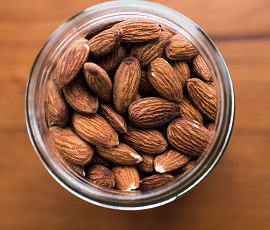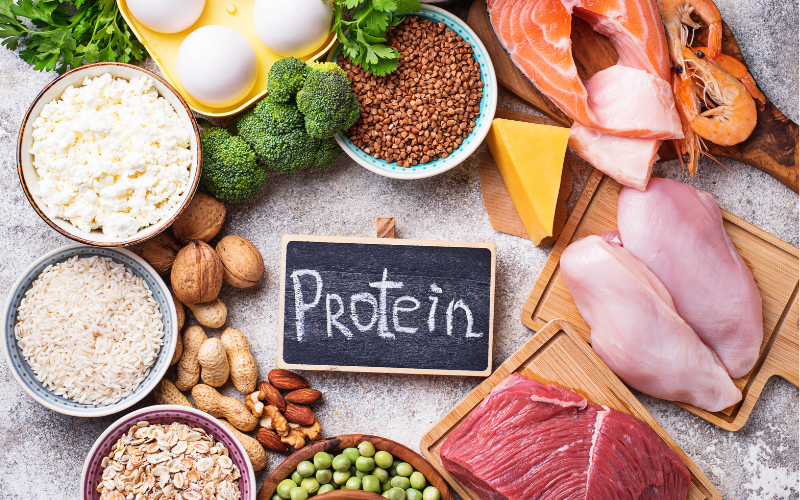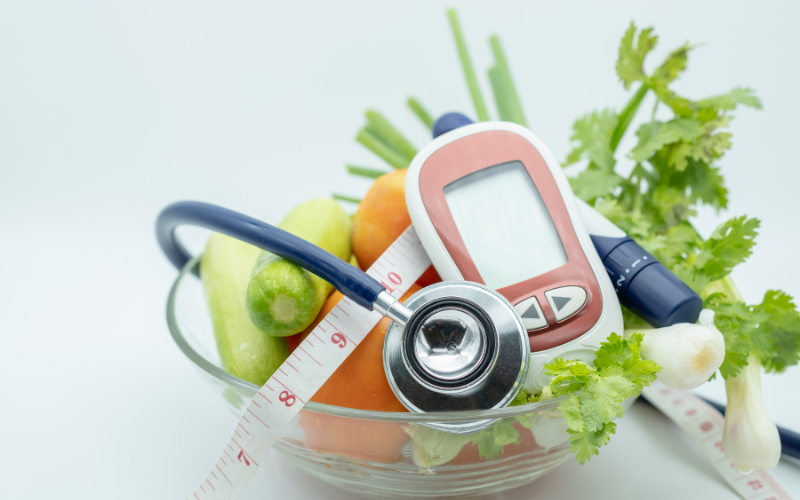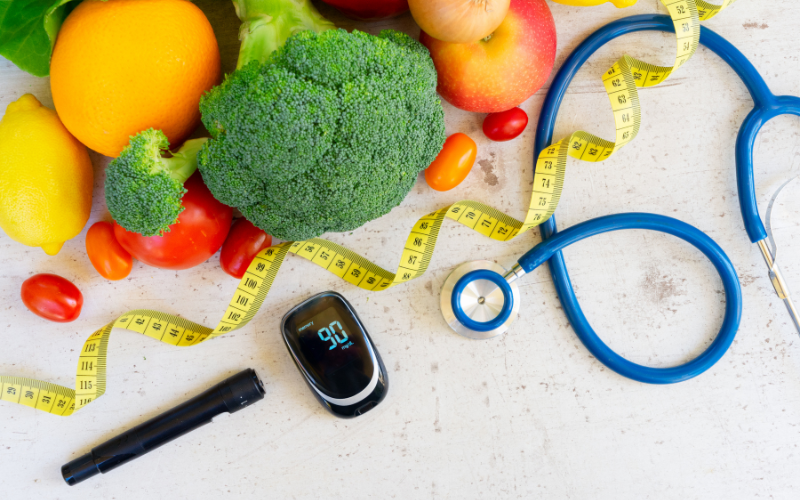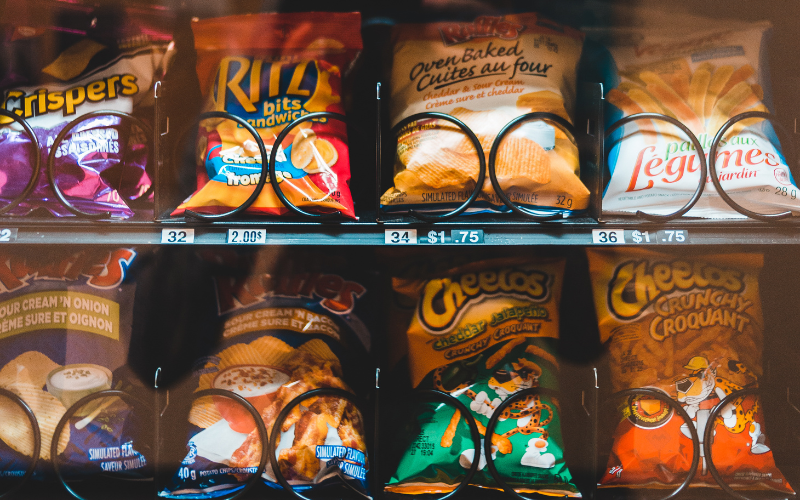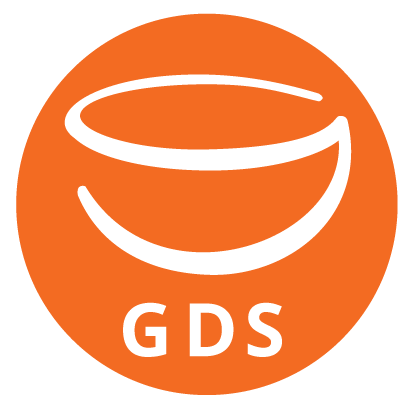7 Top Tips for Healthy Nutrition during Pregnancy & Breastfeeding

Congratulations, you’re pregnant! Although I’ve experienced pregnancy just the once, like everyone else, I too encountered the many ups and downs that tend to arise when you’re expecting. During the first trimester I felt quite nauseous, which is common and is linked to increasing levels of hCG and oestrogen. During my second trimester, I was much better and more at ease from a safety perspective and so I finally began to enjoy being pregnant!
Over the next nine months you are probably going to realise that there’s some things you can control and many things you can’t. Most women I know, myself included, have felt empowered and committed to optimising their pregnancy nutrition, knowing that they were helping to give their unborn child the best start to life.
And the experts agree it’s important. In fact, research now suggests that healthy nutrition during pregnancy can not only effect foetal development but has a longer term impact. A pregnant mother’s under-nutrition or over-nutrition (over consumption of food) has the potential to predispose individuals to chronic disease later in life.
So, what should you be eating while you’re pregnant and if you decide to breastfeed?
Eating for Two?
Forget eating for two, in reality the body only needs a little extra energy during pregnancy and an increase in just a few key nutrients. Opt for quality over quantity, which means reaching for nutrient dense wholefoods whenever you can.
During the first trimester (1-12 weeks) you’ll need no extra calories, but as your body becomes more efficient in extracting the nutrients from your food, you can still expect to put on a little weight. For the second and third trimesters (13+ weeks) you will need to eat 15-25% more calories, made up of mainly protein and carbs. You’ll be looking at say a handful of nuts and 2 slices of bread extra (not a Big Mac or two) so let’s not overdo it!
If you’re breastfeeding you’ll then need a further energy increase, equivalent to about half a cup of porridge and two extra serves of veges per day.
Nutrient Needs During Pregnancy & Breastfeeding
All nutrients are important at this time but here are some main ones you should focus your efforts on:
- Protein – more protein is required during pregnancy to support the baby’s growth and development and changes in Mum too. Grab an extra boiled egg, tub of yoghurt or slice of cheese for example.
- Folate – you’ve heard it can reduce the prevalence of spinal defects, so it’s ideal to boost your folate levels before falling pregnant or as soon as you find out. Natural sources include leafy greens, barley, lentils and beans.
- Iron – due to increased blood volume, iron is critical for pregnancy nutrition and you need 50% more than you did pre-pregnancy. If Mum is iron deficient, then it is likely Baby will be too and this can lead to developmental issues. To obtain your iron from food, go for red meat, kidney beans, lentils, cooked oysters, wheat germ, dried apricots and spinach. Eat high iron foods with Vitamin C rich foods to increase iron absorption.
- Iodine – the thyroid (where iodine is stored) is more active during pregnancy and breastfeeding, hence the need for increased intakes. Iodine is important for brain and nervous system development in babies, so it’s critical that you have enough iodine for your own needs as well as Baby’s. Unfortunately Australians in general are not getting enough iodine in their diets. Aside from fortified bread, other sources are seafood, seaweed, eggs and dairy.
- Zinc – the World Health Organization estimates that 80% of pregnant women worldwide are not getting enough zinc, which is needed to support healthy brain and bone development and the immune system. Red meat, fish and dairy are all high in zinc. Plant sources are nuts, legumes and cereals.
- Calcium – whilst calcium needs do not increase during pregnancy and lactation, most women aren’t getting enough to meet the requirements. Aim for 3 serves a day from milk, yoghurt, cheese or alternatives as well as lentils, beans, seeds, tofu, almonds, dried figs and canned sardines or salmon.
- Omega 3 acids – essential for Baby’s cognitive development, research has demonstrated that a diet high in omega 3’s can help prevent post-natal depression too. The best sources are oily fish such as salmon and sardines. Non fish eaters can look instead to linseed, chia seeds and walnuts.
- Vitamin D – this one’s not technically a vitamin but actually a hormone that is synthesised by the body when sunshine hits your skin. It’s hard to obtain the amount of Vitamin D you need from food, so I recommend getting this one the natural way, by stepping outdoors!
- Probiotics - can help support a healthy microbiome, immune system and digestive health during pregnancy and postpartum. Speak to your health care professional about a suitable probiotic or probiotic rich foods.
You may not be able to obtain all the nutrients you need from your diet so supplementation is usually advised during pregnancy and breastfeeding.
Foods to Avoid
A woman’s immune system is lowered during pregnancy which makes you more prone to picking up infection. Food borne infections such as listeria or salmonella can be very dangerous for you and your baby. Use this handy guide from the Food Authority NSW for foods to eat with caution and those to avoid altogether.
It is also recommended that pregnant women should avoid alcohol (which can pass through the umbilical cord) and avoid high levels of mercury in fish (which can harm your baby’s developing nervous system). Here’s a guide to mercury levels in fish.
Pregnancy side effects: are you suffering morning sickness or constipation?
If so, you’re not alone! One great tip I can give you for morning sickness is to try to increase your protein intake, especially in the morning. I realise for many it’s hard to stomach the sight of any food first thing, let alone keep it down! But if you can manage some breakfast protein, it not only helps regulate blood sugar but it assists detoxification pathways in your liver, which can improve your morning sickness symptoms. Other liver-boosting detoxers are vegetables from the brassica family (broccoli, cauliflower, cabbage) and turmeric.
Constipation is another common complaint during pregnancy. The most important thing here is to up your water intake and make sure you’re getting ample fibre from wholegrains and fibrous veges, beans and lentils.
Can I diet during pregnancy or breastfeeding?
This is a question I’m often asked and my answer is always the same – pregnancy and/or breastfeeding is not the right time to get restrictive with food.
Having said that, if you’re overweight or obese, then you may be able to safely gain less weight during pregnancy than a person of healthy weight and moderately lose weight during breastfeeding. To achieve this you wouldn’t cut your food intake but increase it modestly. You should definitely talk to your doctor about how to go about this safely.
If you’re a person who has trouble judging the right portion sizes or you are worried about eating the wrong foods, then it may be possible to make a Dietlicious meal plan work for you during pregnancy and breastfeeding, most likely by using one of their plans as a base and adding additional healthy calories. But... you must talk to your doctor first or work with a nutritionist/dietitian. Alternatively, just select from their amazing array of individual meals or build your own plan with the right calorie levels and macronutrients.
7 top tips to a healthy you & healthy baby
In conclusion, what I do encourage everyone to do during pregnancy and breastfeeding is to use this time to establish long term healthy eating habits. Adapting your lifestyle now will benefit your unborn baby and yourself in times to come. Here are my top tips:
- Real food, not processed food: try to make nutritious, wholefood choices always.
- Variety: eat a wide range of different foods (and lots of colourful ones) as this will give you the best chance of obtaining all the nutrients you need to maintain good health.
- Don’t overeat: you’re not really eating for two so if you over-indulge then you’ll have more work to do afterwards.
- Sweet cravings: if you’re desperate for that bit of chocolate, that’s fine but just limit yourself to a small serving. And do try to steer well clear of discretionary foods that add calories but not nutrients – such as processed biscuits, cakes and snacks. You can find some healthy, natural, sugar-free snack options at Dietlicious.
- Vegetables: even if you’re not much of a vege eater ordinarily, try to incorporate as many as you can at this time. The recommended 5 serves a day increases to 7 serves a day for breastfeeding and many of us just don’t get enough.
- Eat more fibre: we now know that an unhealthy gut microbiome is linked to many physical and mental health issues. Getting enough fibre is crucial for feeding the healthy bacteria that reside inside us yet unfortunately Australian’s aren’t getting enough. Upping your fruit and vege intake will help, as will the consumption of other plant foods such as wholegrains, beans and lentils.
- Drink more water: with morning sickness, constipation or breastfeeding you’ll need extra fluids. Herbal teas are also a good choice.
Remember, everyone’s situation is different so consult your health professional for personalised advice around healthy nutrition during pregnancy.

